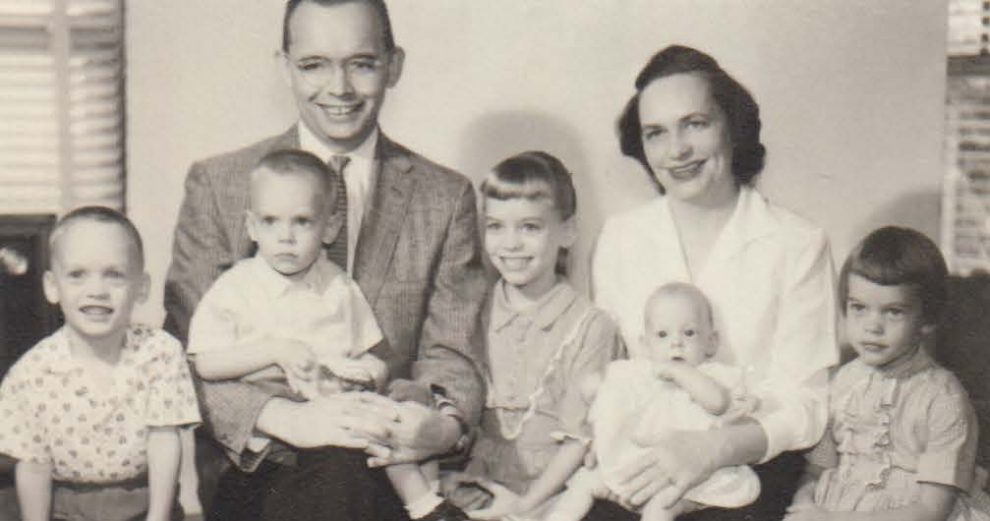The lessons learned in the home are those that last the longest.
 I grew up on a farm in Missouri, and many of my early lessons were about work. Mowing the fields by tractor took half a day, but it reduced the chiggers when we ran to the pond to swim each afternoon. We spent three hours each morning weeding the gardens; somehow, despite hating it, we learned that the painstaking care itself seemed to make the vegetables taste better. We’d sit in the yard for hours to shell peas, snap beans, or strip corn of the cob, and Mom would have us singing the whole time to pass the time faster. It was in the home that I learned the sweet rewards of self-imposed hard labor.
I grew up on a farm in Missouri, and many of my early lessons were about work. Mowing the fields by tractor took half a day, but it reduced the chiggers when we ran to the pond to swim each afternoon. We spent three hours each morning weeding the gardens; somehow, despite hating it, we learned that the painstaking care itself seemed to make the vegetables taste better. We’d sit in the yard for hours to shell peas, snap beans, or strip corn of the cob, and Mom would have us singing the whole time to pass the time faster. It was in the home that I learned the sweet rewards of self-imposed hard labor.
Dr. Glenn J. Doman wrote on the importance of creativity and breadth in early childhood experiences:
“The newborn child is almost an exact duplicate of an empty … computer, although superior to such a computer in almost every way. … What is placed in the child’s [mind] during the first eight years of life is probably there to stay. … If you put misinformation into his [mind] during [this period], it is extremely difficult to erase it.” Dr. Doman added that the most receptive age in human life is that of two or three years. [How to Teach Your Baby to Read, Dr. Glenn J. Doman, (1963), Pages 43-45.]
In an article entitled “A Day at the Beach”, Arthur Gordon tells how one of his early lessons was the importance of family time:
 When I was around thirteen and my brother ten, Father had promised to take us to the circus. But at lunchtime there was a phone call; some urgent business required his attention downtown. We braced ourselves for disappointment. Then we heard him say, “No, I won’t be down. It’ll have to wait.”
When I was around thirteen and my brother ten, Father had promised to take us to the circus. But at lunchtime there was a phone call; some urgent business required his attention downtown. We braced ourselves for disappointment. Then we heard him say, “No, I won’t be down. It’ll have to wait.”
When he came back to the table, Mother smiled [and said,] “The circus keeps coming back, you know.”
“I know,” said Father. “But childhood doesn’t.” [A Touch of Wonder (1974), Pages 77-78.]
The blessings of starting early at home are real. Close families don’t emerge overnight. It takes work, and it’s all worth it—They grow up, take responsibility, and start families of their own. And by so doing, they learn some of the sweetest lessons life has to offer, such as, a child’s future is worth every sacrifice:
The hearth at home is the heart of learning. I’ve learned for myself that lasting lessons are learned at home.
——– End of Post ——–
Bonus Materials:
1. Gordon B. Hinckley stated
The home is the basis of a righteous life, and no other instrumentality can take its place nor fulfill its essential functions.
2. Read, watch or listen to Thomas S. Monson, “Constant Truths for Changing Times”, Apr 2005 LDS General Conference.
3. Read, watch or listen to Robert D. Hales, “Strengthening Families: Our Sacred Duty”, Apr 1999 LDS General Conference.
——– End of Bonus Materials ——–
WebCredits—List of web resources used in this post but not explicitly credited above:
- Photo, kid on tractor—www. expeditionoklahoma.com/2011/04/
- Photo, swimming after the work is done—www. expeditionoklahoma.com/2011/04/
- Photo, “Life In The Woods At Henry David Thoreau’s Walden Pond”—From personal collection
- Photo, “Make Way For Ducklings! And Kids!”—From personal collection
——– End of WebCredits ——–








